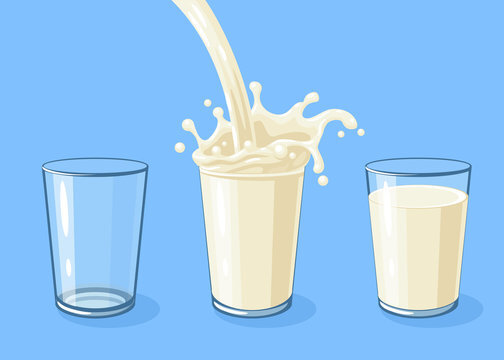As an athlete, finding the right post-workout recovery drink is crucial for optimising performance and promoting muscle growth. While there are a variety of options available, one drink that has been found to be particularly effective is milk.
Milk contains a unique blend of nutrients that make it an ideal recovery drink for athletes. It is a rich source of high-quality protein, carbohydrates, and electrolytes, all of which are essential for replenishing the body after a strenuous workout or training session. Protein is one of the most important nutrients for muscle recovery and growth. It is made up of amino acids, which are the building blocks of muscle tissue. Milk is an excellent source of protein, containing approximately 8 grams per cup. The protein in milk is also high in the amino acid leucine, which has been found to be particularly effective for stimulating muscle protein synthesis. In addition to protein, milk also contains carbohydrates, which are the body’s primary source of energy. Carbohydrates are stored in the muscles and liver as glycogen, and during exercise, these stores are depleted. Consuming carbohydrates after a workout can help replenish glycogen stores and provide the body with the energy it needs to recover. Electrolytes are minerals that help regulate fluid balance in the body and are lost through sweat during exercise. Milk contains electrolytes such as sodium, potassium, and calcium, which are important for maintaining proper hydration and muscle function. Replacing electrolytes after a workout can also help prevent muscle cramping and fatigue.
Another benefit of milk as a recovery drink is that it is a readily available and affordable option. It can be found in most grocery stores and is typically less expensive than other recovery drinks on the market.
There have been several studies that have examined the effectiveness of milk as a recovery drink for athletes. One study published in the Journal of Strength and Conditioning Research found that consuming milk after exercise was more effective at promoting muscle growth than a carbohydrate-only drink. The researchers concluded that milk’s unique blend of nutrients, including protein and carbohydrates, was responsible for its effectiveness. Another study published in the International Journal of Sport Nutrition and Exercise Metabolism found that consuming milk after exercise improved endurance performance in cyclists. The researchers attributed this improvement to the fact that milk contains both protein and carbohydrates, which can help replenish energy stores and promote muscle recovery.
It is worth noting that not all types of milk are created equal when it comes to recovery. Whole milk contains more fat than low-fat or skim milk, which can slow down the digestion and absorption of nutrients. However, some athletes may prefer whole milk as it contains more calories, which can be beneficial for those looking to gain weight or increase muscle mass.
In conclusion, milk is a good recovery drink for athletes due to its unique blend of nutrients, including high-quality protein, carbohydrates, and electrolytes. It has been found to be effective at promoting muscle growth, improving endurance performance, and preventing muscle cramping and fatigue. Milk is also a readily available and affordable option, making it a convenient choice for athletes looking to optimize their recovery.
By Grant van Velden

